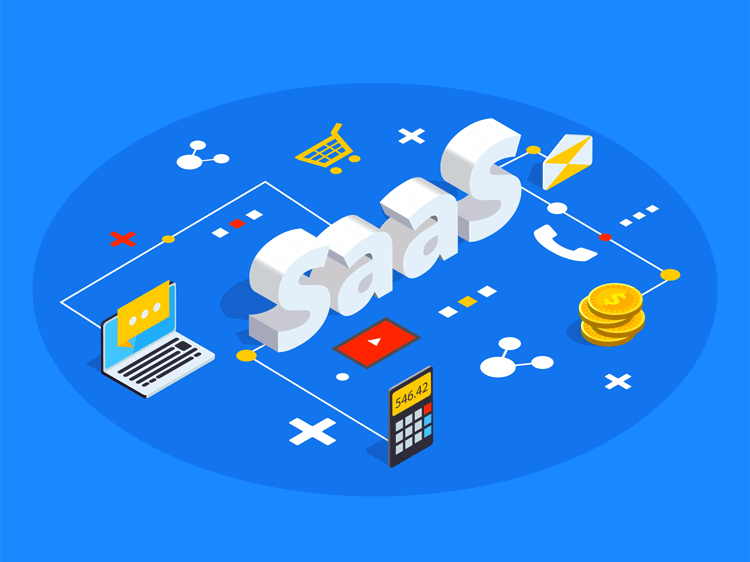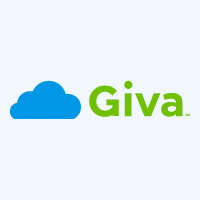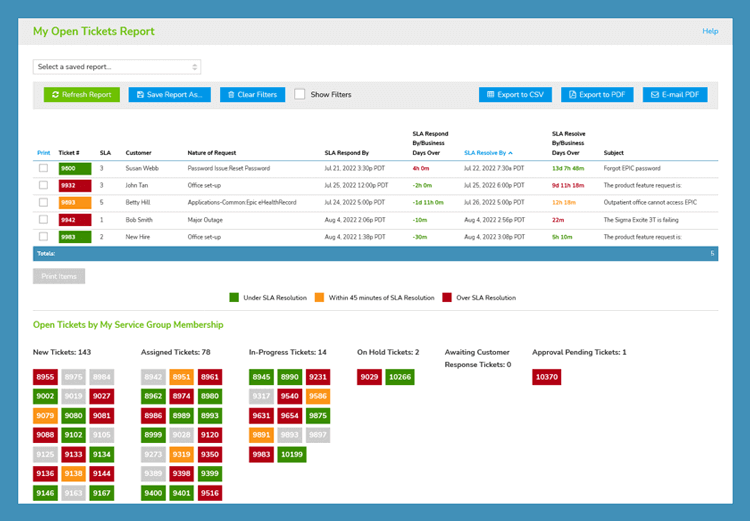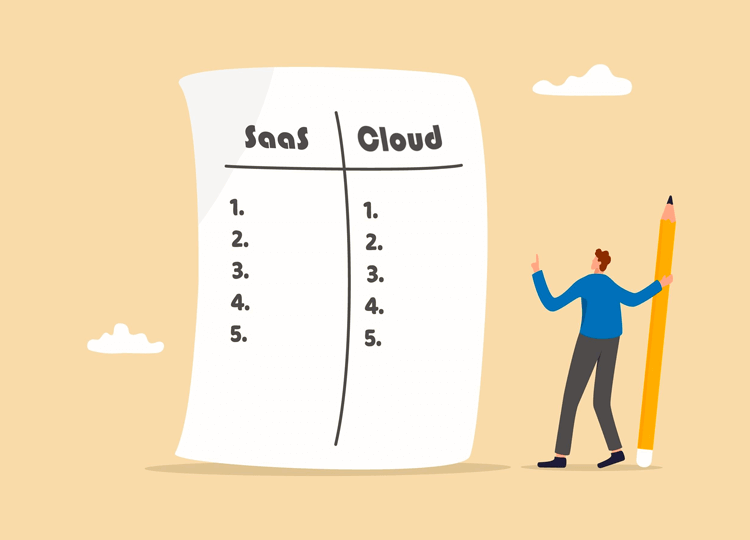Types of SaaS: A Comprehensive Guide Plus Categorized Examples
Software as a Service (SaaS) has become a cornerstone for businesses of all sizes and industries. SaaS solutions offer flexibility, scalability, and cost-effectiveness, making them perfect for modern enterprises.
Understanding the different types of SaaS can help businesses to select the right tools that align with their specific needs and goals.
This article covers extensively the various types of SaaS, highlighting their key features and benefits to help you make informed decisions and optimize your business operations.

Why Understanding the Types of SaaS Can Be Important
Understanding the different types of Software as a Service that exist actually can have business value, such as the following:
- Cost Efficiency:
- Businesses can avoid unnecessary expenditures by choosing SaaS solutions that precisely match their requirements.
- SaaS applications often integrate seamlessly with existing systems, bringing automation and reducing manual effort.
- SaaS tools are designed to streamline various aspects of business operations, such as communication, collaboration, and data management.
- Many SaaS solutions facilitate remote work, allowing businesses to manage distributed teams efficiently.
Horizontal SaaS vs. Vertical SaaS and the Benefits of Each
SaaS types can be classified under two major categories: Horizontal or Vertical, each with their own unique benefits:
-
Horizontal SaaS
Horizontal SaaS refers to software-as-a-service solutions designed to serve a broad range of industries. Their functionalities are more general so that they can be used across various sectors.
Benefits
- Wide applicability across different industries and business functions
- Flexibility and scalability to suit diverse business needs
- Larger market reach and broader user base
-
Vertical SaaS
Vertical SaaS refers to software solutions tailored for a specific industry or niche. They address their unique needs, processes, and regulations.
Benefits
- Customized functionalities that cater to industry-specific requirements
- Enhanced compliance with industry standards and regulations
- More focused customer support and expertise in the industry
18 Types of SaaS Listed by Categories or Industries with Examples
Below are many different types of SaaS available today, listed in the following way:
- Horizontal or Vertical Type
- Under each Horizontal listing, a general categorization
- Under each of those and the Vertical types, further specific categorizations or industries with key features, benefits, and some examples
Here's our list of categorizations:
- Horizontal
- Business Management SaaS
- Collaboration and Communication SaaS
- E-Commerce SaaS
- Marketing and Sales SaaS
- IT and Security SaaS
- Vertical
Horizontal SaaS
Business Management SaaS
-
Customer Relationship Management (CRM)
Key Features:
- Integration with various third-party apps
- Email marketing automation
- Lead tracking and management
Key Benefits:
- Enhanced sales pipeline visibility
- Improved customer interactions and relationship management
Examples:
- Salesforce
- HubSpot
-
Enterprise Resource Planning (ERP)
Key Features:
- Real-time data processing
- Comprehensive modules for finance, HR, and supply chain
- Robust analytics and reporting
Key Benefits:
- Enhanced data accuracy and decision-making
- Scalable for large enterprises
Examples:
- SAP
- Oracle
-
Human Resources Management (HRM)
Key Features:
- Employee self-service portal
- Time-off tracking and management
- Performance evaluation tools
Key Benefits:
- Improved employee engagement
- Enhanced workforce planning
- Real-time insights into HR and financial data
Examples:
- BambooHR
- Workday
Collaboration and Communication SaaS
-
Project Management Tools
Key Features:
- Task and project tracking
- Timeline and workload management
- Integration with other tools like Slack and Google Drive
Key Benefits:
- Improved project visibility and organization
- Flexible for various project management methodologies
Examples:
- Asana
- Trello
-
Communication Platforms
Key Features:
- Real-time messaging and channels
- Integration with various apps and services
- File sharing and collaboration tools
- Video conferencing and meeting scheduling
Key Benefits:
- Enhanced productivity
- Centralized communication hub
- Supports remote and distributed teams
Examples:
- Slack
- Microsoft Teams
-
File Sharing and Storage
Key Features:
- Cloud storage and file synchronization
- Collaborative document editing
- Integration with various third-party apps
Key Benefits:
- Secure and accessible from anywhere
- Cost-effective storage solutions
- Scalable storage options
Examples:
- Dropbox
- Google Drive
E-Commerce SaaS
-
Online Store Builders
Key Features:
- Payment processing integration
- Flexible store customization
- Built-in SEO tools
- Multi-channel selling capabilities
Key Benefits:
- Quick setup and launch
- Scalable for small to large businesses
- Supports growth and scalability
Examples:
- Shopify
- BigCommerce
-
Payment Processing
Key Features:
- Support for multiple payment methods
- Advanced fraud detection tools
- Integration with numerous e-commerce platforms
Key Benefits:
- Secure and reliable transactions
- Scalable for businesses of all sizes
- Trusted by consumers worldwide
- Easy to set up and use
- Strong buyer and seller protection
Examples:
- Stripe
- PayPal
Marketing and Sales SaaS
-
Marketing Automation
Key Features:
- Audience segmentation and targeting
- Analytics and reporting tools
- Email and SMS marketing automation
- Integration with e-commerce platforms
Key Benefits:
- Scalable for small to medium businesses
- Personalized marketing campaigns
- Enhanced customer engagement
Examples:
- Mailchimp
- Klaviyo
-
Email Marketing
Key Features:
- Comprehensive analytics and reports
- Email template library
- Event management tools
- Social media integration
Key Benefits:
- Simplified email marketing
- Effective customer engagement
- Effective for small businesses
Examples:
- Mailchimp
- Constant Contact
-
SEO Tools
Key Features:
- Comprehensive site audit tools
- Backlink analysis and competitor research
- Keyword research and rank tracking
- Competitor analysis and domain comparison
- On-page SEO audit tools
Key Benefits:
- In-depth SEO insights
- Improved search engine visibility
- Actionable data for SEO strategies
Examples:
- Ahrefs
- SEMrush
-
Sales Automation
Key Features:
- Automated sales sequences
- Email tracking and analytics
- CRM integration
- Visual sales pipeline management
- Customizable stages and fields
- Integrations with various third-party apps
Key Benefits:
- Streamlined sales processes
- Enhanced sales team productivity
- Improved lead conversion rates
- Scalable for businesses of all sizes
Examples:
- Outreach
- Pipedrive
IT and Security SaaS
-
Cybersecurity Solutions
Key Features:
- Endpoint detection and response
- Threat intelligence and hunting
- Antivirus and malware protection
- Secure VPN and password manager
- Identity theft protection
Key Benefits:
- Enhanced threat detection and response
- Improved cybersecurity posture
- Scalable for enterprises
- Effective for personal and business use
Examples:
- HackerOne
- Norton
-
IT Service Management (ITSM)
Key Features:
- Incident management
- Change management
- Knowledge and asset management
- Workflow automation
- Self-service portal
Key Benefits:
- Streamlined IT service operations
- Improved service delivery and support
- Scalable for large enterprises
- Suitable for small to medium-sized businesses
Examples:
- Giva
- ServiceNow
-
Cloud Management Platforms
Key Features:
- Extensive cloud services (computational, storage, database, etc.)
- Advanced security and compliance
- Hybrid cloud capabilities
- Comprehensive AI and machine learning tools
Key Benefits:
- Scalable for enterprises
- Highly scalable and flexible
- Wide range of services and tools
- Strong reliability and performance
Examples:
- AWS (Amazon Web Services)
- Microsoft Azure
Vertical SaaS
-
Healthcare SaaS
Key Features:
- Electronic Health Records (EHR) management
- Patient scheduling and billing
- Telehealth capabilities
- Clinical and financial management
- Interoperability solutions
Key Benefits:
- Improved patient care and outcomes
- Streamlined healthcare operations
- Strong compliance with healthcare regulations
- Enhanced clinical workflows
- Improved healthcare data management
- Scalable for large healthcare organizations
Examples:
- Epic
- Cerner
-
Education SaaS
Key Features:
- Virtual classroom and collaboration tools
- Assessment and grading tools
- Mobile-friendly access
- Integration with third-party apps
Key Benefits:
- Enhanced online learning experiences
- Effective student engagement and collaboration
- Scalable for educational institutions
- Enhanced student and teacher interaction
- Scalable for K-12 and higher education
Examples:
- Blackboard
- Canvas
-
Finance SaaS
Key Features:
- Invoicing and expense tracking
- Financial reporting and analytics
- Payroll management
- Real-time financial reporting
- Bank reconciliation and transaction tracking
Key Benefits:
- Simplified financial management
- Suitable for small to medium-sized businesses
- Streamlined accounting processes
- Scalable for growing businesses
Examples:
- QuickBooks
- Xero
Conclusion: SaaS for All Your Business's Needs
The improvements in cloud security have allowed SaaS to not only be a mainstay but a chief part of most companies' business operations.
Understanding the distinctions between vertical and horizontal SaaS, and recognizing the unique benefits and features of each type, helps organizations optimize their processes, enhance productivity, and drive growth. By carefully selecting and integrating the appropriate SaaS tools, businesses can stay competitive and innovate continuously.
Whether it's improving customer relationships, streamlining project management, or securing data, the diverse world of SaaS offers a solution tailored to every need.
Giva Can Provide Cornerstone Support for Your Business Operations
One of the first SaaS companies founded in 1999, Giva provides a suite of customer support products built for the cloud.
Our IT Service Management software:
- Allows you to start quickly and then build on ITIL® best-practices for Service Level Management, Incident Management, Problem Management, Knowledge Management, Change Enablement/Management, etc.
- Has an intuitive design
- Brings low training costs and start-up time
- Needs no coding, programming or consultants
- Offers real-time custom reporting and KPIs with full color charts and graphs
- Provides the highest security with HIPAA compliance, SSAE 18 SCO II Type 2 certification, and native Multi-factor Authentication (MFA)
Schedule a demo today to help your organization bring the highest in support excellence, or start a free, 30-day trial to see Giva for yourself!





